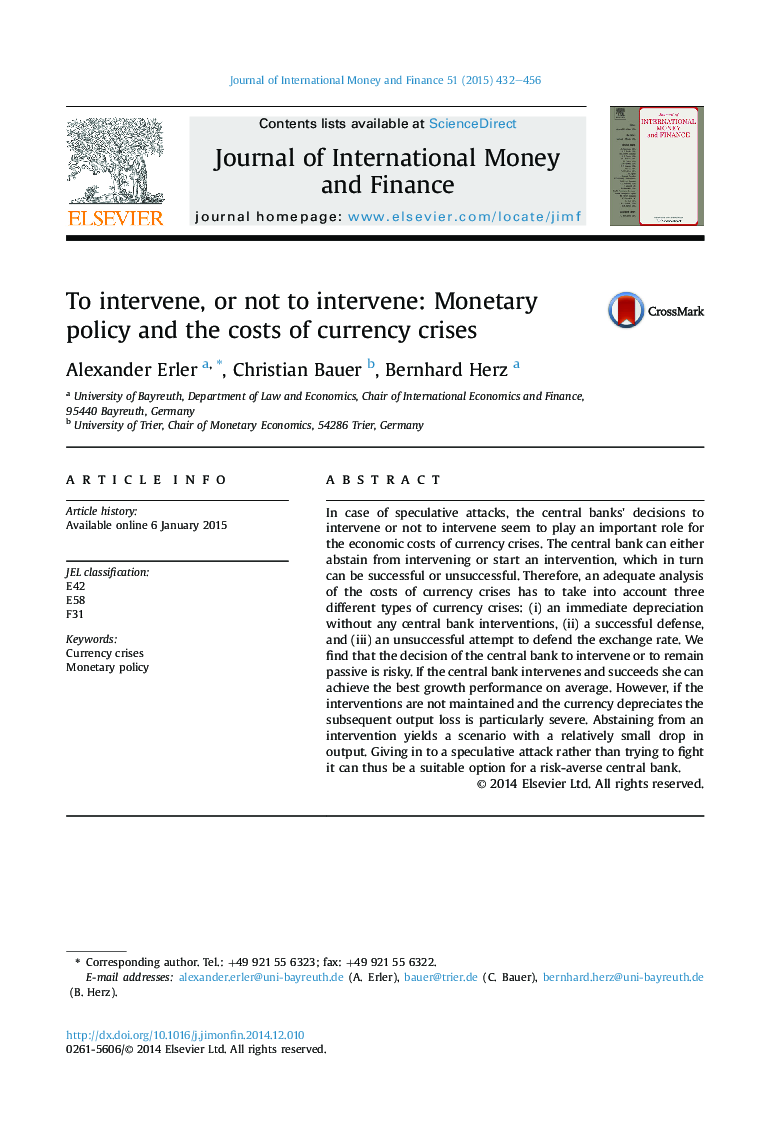| Article ID | Journal | Published Year | Pages | File Type |
|---|---|---|---|---|
| 963952 | Journal of International Money and Finance | 2015 | 25 Pages |
•The decision of a central bank to intervene in the case of a speculative attack is risky.•If the central bank intervenes successfully, she can achieve the best result in terms of output growth.•If the central bank fails, she will face the worst growth performance.•In contrast, immediate depreciations tend to be associated with little economic costs.•Abstaining from intervention could be an interesting alternative for a conservative central bank.
In case of speculative attacks, the central banks' decisions to intervene or not to intervene seem to play an important role for the economic costs of currency crises. The central bank can either abstain from intervening or start an intervention, which in turn can be successful or unsuccessful. Therefore, an adequate analysis of the costs of currency crises has to take into account three different types of currency crises: (i) an immediate depreciation without any central bank interventions, (ii) a successful defense, and (iii) an unsuccessful attempt to defend the exchange rate. We find that the decision of the central bank to intervene or to remain passive is risky. If the central bank intervenes and succeeds she can achieve the best growth performance on average. However, if the interventions are not maintained and the currency depreciates the subsequent output loss is particularly severe. Abstaining from an intervention yields a scenario with a relatively small drop in output. Giving in to a speculative attack rather than trying to fight it can thus be a suitable option for a risk-averse central bank.
